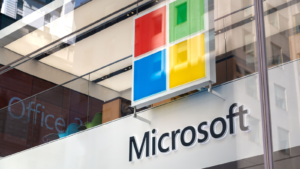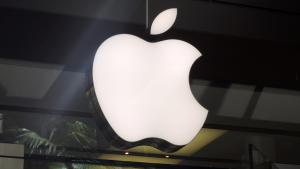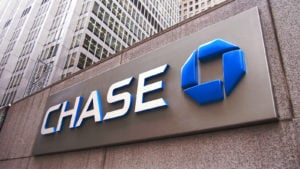Just as flowers emerge from the ground every year, income investors can count on the best dividend stocks to provide a reliable return.
They give retirees an income stream, and they provide younger investors with an opportunity to reinvest the payout, turbocharging their portfolios and building toward the future.
The very best dividend stocks can also be counted on to provide solid returns as a stock. That’s what we’re looking for.
We’re using the Portfolio Grader to find highly rated stocks based on earnings performance, growth, analyst sentiment, momentum and other factors. To top it off, we’re only looking for stocks that also have a good score on the companion Dividend Grader tool.
Investing in these seven stocks is a surefire way to earn solid returns and a reliable dividend.
You can look forward to it with anticipation, just as much as you look forward to the first warm spring day of the year.
Microsoft (MSFT)

Microsoft (NASDAQ:MSFT) is simply the biggest company in the world by market capitalization. Valued now at more than $3 trillion, Microsoft makes a fortune from developing, licensing, and supporting software and services.
Its involvement in generative artificial intelligence, the latest fad on Wall Street that is changing how many businesses operate fueled its most recent surge over the last year.
Generative AI can create high-quality text, content and images that appear if a human created them. Microsoft invested $13 billion into OpenAI, the creator of ChatGPT, and infused many of its products with generative AI.
Microsoft’s revenue was $62 billion in the second quarter of fiscal 2024, up 18% from a year ago. While Microsoft’s 0.7% dividend yield is nothing to write about, the company increased the size of the dividend annually for the last 22 years.
MSFT stock is up 63% in the last 12 months. It gets an “A” rating in the Portfolio Grader and a “B” rating in the Dividend Grader.
Apple (AAPL)

Apple (NASDAQ:AAPL) used to be the No. 1 company in the world before Microsoft passed it.
With a capitalization of $2.6 trillion, Apple hasn’t been able to keep up with Microsoft, recording a gain in the last 12 months of only 14%.
Now, don’t get me wrong. There’s nothing wrong with a 14% gain. Apple is soundly outperforming the market. But I also understand why some investors have been a little disappointed in Apple in recent months.
The company faces headwinds from China from a significant challenger in Huawei, which is finally rolling out its own 5G smartphone as a direct competitor. Apple saw its sales drop in China by 24% in the last quarter, as Huais solidly in second place.
That helped revenue drop by 2.8% from a year ago and increased sales by only 2% overall.
CEO Tim Cook promises Apple will “break new ground” this year with generative AI, and the company also ended is work developing electric vehicles to devote more resources into AI.
That’s the right call, because Apple needs to return to its innovative roots if it’s going to hit the $3 trillion mark in market cap.
I still have plenty of faith in Apple, which provides a dividend yield of nearly 0.5% and raised its dividend in each of the last 12 years. AAPL gets “B” ratings in both the Portfolio Grader and the Dividend Grader.
JPMorgan Chase & Co. (JPM)

JPMorgan Chase & Co. (NYSE:JPM) is a bank stock, but not just any bank stock. JPMorgan is the biggest bank in the United States, with more than 4,800 locations and total assets under management of $3.3 trillion.
JPMorgan provides banking, investment, and financial services, including deposit accounts, lending, advisory services, and asset management.
The company saw net revenue of $38.57 billion in the fourth quarter, up 12% from a year ago. However, net income was down 15%, as JPMorgan is integrating the former First Republic Bank and remodeling its existing branches.
Nonetheless, JPM stock is up a strong 40% in the last year, and should continue to improve as interest rates fall in 2024, as expected, and the homebuying market gathers strength.
JPMorgan provides a dividend yield of 2.2%. It gets “B” ratings in the Portfolio Grader and the Dividend Grader.
Walmart (WMT)

Walmart (NYSE:WMT) is the biggest retailer in the world, according to the National Retail Federation.
The company saw strong growth in 2023, with revenue in the fourth quarter coming in at $173.4 billion, up 5.7% from a year ago. Income of $1.7 billion was up 30.4% from a year ago.
For the year, Walmart had revenue of $648.1 billion, up 6% from 2022, and income of $6.6 billion up 32.2% from the previous year.
Walmart recently executive a 3-for-1 stock split that pushed the stock price to $61 per share. That’s an appealing number for options traders and investors whose brokerages don’t offer fractional shares.
Walmart also recently announced a deal to buy smart TV maker Vizio (NYSE:VZIO) for $2.3 billion, allowing it to expand the reach of its Walmart Connect media platform and expand its advertising business.
WMT stock has been a strong play even in an inflationary market, rising 32% in the last year. The stock also pays a dividend yield of 1.3%, and Walmart increased the size of its dividend annually for the last 53 years.
WMT gets an “A” rating in the Portfolio Grader and a “B” rating in the Dividend Grader.
Eli Lilly & Co. (LLY)

Eli Lilly & Co. (NYSE:LLY) is one of the best-known drugmakers you can buy. While it has a substantial portfolio, the most interesting opportunity for investors is Zepbound, the company’s obesity drug.
The injectable drug could bring in billions to Lilly’s coffers. Estimates suggest the drug could be worth $25 billion a year or more. An estimated 42% of adults in the U.S. are considered to be obese, according to the National Institutes of Health.
And the results for Zepbound are dynamic. About 1 in 3 people who have taken the drug at its highest dose (15 mg) report losing more than 58 pounds over a 72-week period.
Not surprisingly, LLY stock performed well over the last year, rising by 140% as investors piled in. LLY also provides a dividend yield of 0.7%, and the payout increased in each of the last 10 years.
LLY stock gets an “A” rating in the Portfolio Grader and a “B” rating in the Dividend Grader.
Mastercard (MA)

Mastercard (NYSE:MA) is one of the biggest and best-known credit card companies in the world. Through the end of 2023, the company issued 3.3 billion Mastercard and Maestro-branded credit and debit cards, helping to facilitate transactions around the world.
Mastercard makes money in two ways. It is a middleman between customers and businesses, making money every time someone swipes their credit or debit card. Mastercard also makes money by working directly with banks to allow them to brand their debit and credit cards with the Mastercard name.
Revenue in the fourth quarter was $25.1 billion, up 13% from a year ago. Operating income of $14 billion improved from $12.3 billion in the fourth quarter of 2022, and the operating margin was an impressive 55.8%.
Mastercard also repurchased 4.5 million shares of MA stock over the quarter, and bought 23.8 million shares throughout 2023 year for $9 billion.
MA stock is up 35% in the last year, and offers a dividend yield of 0.5%. It gets a “B” rating in both the Portfolio Grader and the Dividend Grader.
Broadcom (AVGO)

Broadcom (NASDAQ:AVGO) manufactures semiconductors for data centers, networking, software, storage, wireless, and industrial applications. It’s also one of the best dividend stocks in the semiconductor market.
Broadcom is a leading supplier of Ethernet switching and routing silicon products, network adapters, controllers, and transceivers. Its products are often used in the wireless and broadband communications industry.
The company is coming off a strong year in which it closed its purchase of VMWare, which is expected to make it easier for clients to build and modernize private and hybrid cloud environments.
Its semiconductor segment is seeing vigorous growth as demand for its networking products grows in AI data centers and custom AI accelerators from hyper-scalers.
Revenue in the first quarter of fiscal 2024 included revenue of $11.96 billion, up from $8.9 billion a year ago. Its semiconductor solutions segment saw 4% growth to $7.4 billion.
Broadcom stock has increased 118% in the last 12 months and pays a dividend yield of 1.6%. It receives an “A” rating in the Portfolio Grader and a “B” rating in the Dividend Grader.
On the date of publication, Louis Navellier had long positions in MSFT and LLY. Louis Navellier did not have (either directly or indirectly) any other positions in the securities mentioned in this article.
The InvestorPlace Research Staff member primarily responsible for this article had a long position in AAPL. The staff member did not hold (either directly or indirectly) any other positions in the securities mentioned in this article.
